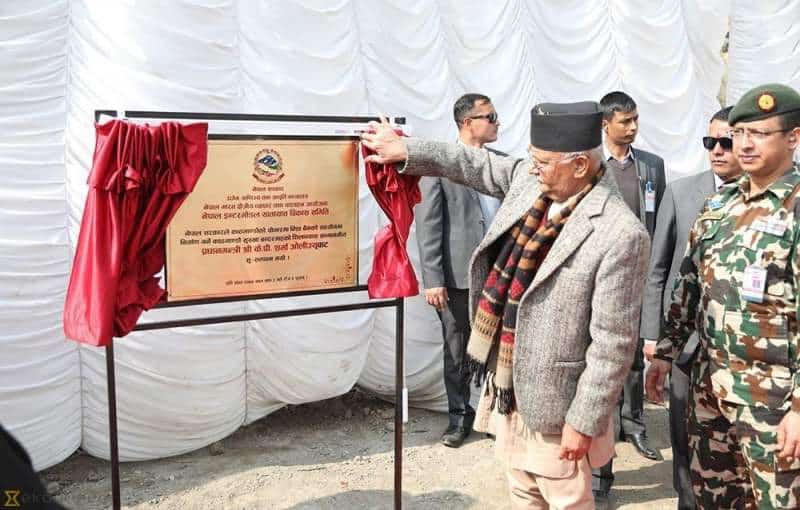KATHMANDU – The construction of an international dry port has begun in Nepal’s Kathmandu Valley.
Nepali Prime Minister KP Sharma Oli on Thursday laid a foundation stone of the dry port in Chobhar, Kirtipur municipality, several km away from the Ring Road.
The construction of the dry port has been handled by the Nepal Intermodal Transport Development Board under the Ministry of Industry, Commerce, and Supplies with the loan assistance from the World Bank.
The dry port is expected to ease the congestion of cargo in existing dry ports and in an expansion of Nepal’s trade with neighbor countries.
“The dry port will take our trade from central level to the international level. It will have a positive impact especially on Nepal-India and Nepal-China trade relations,” the prime minister said after laying the foundation as per the Hindu rituals.
Mentioning that the dry port has multi-dimensional benefits, the prime minister said that it will highly contribute to the country’s goal of development and prosperity.
“The dry port will explore economic and commercial activities and will support the local livelihood by creating job opportunities,” he added.
The dry port is being constructed in a piece of 11.77-hectare land allocated by Himal Cement Factory at an estimated cost of 1.48 billion Nepali Rupees (13.3 million US dollars).
It will contain warehouses, parking lot, litigation shed, administrative buildings for customs, quarantine, bank and other required facilities for customs clearance. The dry port will have the capacity to accommodate over 600 containers and parking facility for at least 350 trucks.
The dry port in Kathmandu has been expected to become a business hub in future as it is connected with the Fast-Track Road Project, an expressway which joins Kathmandu with Terai region, and to-be-soon constructed outer Ring Road.
Addressing the event, Finance Minister Yubaraj Khatiwada said that the dry port in Kathmandu will be very useful as it will save both time and money.
Currently, Nepal has been holding over 55 percent of the country’s total import-export through Birgunj dry port, which is located five-hour drive from the capital.
According to the Nepal Intermodal Transport Development Board, two contractors will work simultaneously to complete the construction process of the dry port within 18 months.
Following the construction of the dry port, the government plans to construct an international exhibition center in the capital.














